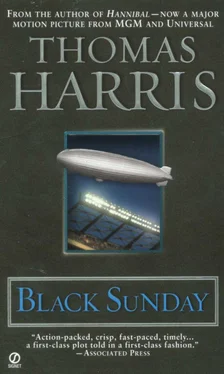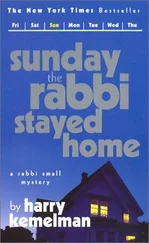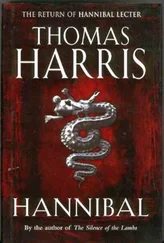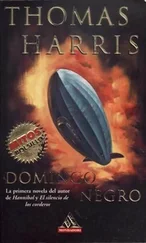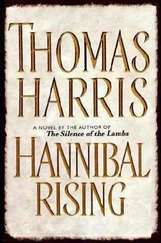“I think they’re bringing in a pilot.” He told her the details.
“If the pilot leads you to the rest of them, then that’s it,” she said.
“If we get the plastic and we can get all of them, yes.”
Rachel started to ask another question and bit it off.
“How long can you stay?” Kabakov asked.
“Four or five days. Longer if I can help you. I thought I’d go back to New York and catch up on my practice and then come back on, say, the tenth or the eleventh—if you’d like me to.”
“Of course I’d like you to. When this is over, let’s really do New Orleans. It looks like a good town.”
“Oh, David, you’ll see what a town it is.”
“One thing. I don’t want you to come to the Super Bowl. Come to New Orleans, fine, but I don’t want you around that stadium.”
“If it’s not safe for me, it’s not safe for anybody. In that case people should be warned.”
“That’s what the president told the FBI and the Secret Service. If there is a Super Bowl, he’s coming.”
“It might be canceled?”
“He called in Baker and Biggs and said that if the Super Bowl crowd cannot be adequately protected, himself included, he will cancel the game and announce the reason. Baker told him the FBI could protect it.”
“What did the Secret Service say?”
“Biggs doesn’t make foolish promises. He’s waiting to see what happens with this pilot. He isn’t inviting a damned soul to the Super Bowl and neither am I. Promise me you won’t come to the stadium.”
“All right, David.”
He smiled. “Now tell me about New Orleans.”
Dinner was splendid. They ate beside the window and Kabakov relaxed for the first time in days. Outside, New Orleans glittered in the great curve of the river, and inside was Rachel, soft beyond the candles, talking about coming to New Orleans as a child with her father and how she had felt like a great lady when her father took her to Antoine‘s, where a waiter tactfully slipped a pillow onto her chair when he saw her coming.
She and Kabakov planned a mighty dinner at Antoine’s for the night of January 12, or whenever his business was concluded. And full of Beaujolais and plans, they were happy together in the big bed. Rachel went to sleep smiling.
She awoke once after midnight and saw Kabakov propped against the headboard. When she stirred he patted her absently, and she knew he was thinking of something else.
The truck carrying the bomb entered New Orleans at eleven p.m. on December 31. The driver followed U.S. 10 past the Superdome to the intersection with U.S. 90, turned south and came to a stop near the Thalia Street wharf beneath the Mississippi River Bridge, an area deserted at that time of night.
“This is the place he said,” the man at the wheel told his companion. “I’m damned if I see anybody. The whole wharf is closed.”
A voice at his ear startled the driver. “Yes, this is the place,” Fasil said, mounting the running board. “Here are the papers. I’ve signed the receipt.” While the driver examined the documents with his flashlight, Fasil inspected the seals on the tailgate of the truck. They were intact.
“Buddy, could you let us have a ride to the airport? There’s a late flight to Newark we’re trying to catch.”
“Sorry, but I can‘t,” Fasil said. “I’ll drop you where you can get a taxi.”
“Christ Jesus, it’ll be ten bucks to the airport.”
Fasil did not want a row. He gave the man ten dollars and dropped the drivers off a block from a cabstand. He smiled and whistled tunelessly between his teeth as he drove toward the garage. He had been smiling all day, ever since the voice on the pay phone at the Monteleone Hotel told him the pilot was coming. His mind was alive with plans, and he had to force himself to concentrate on his driving.
First he must establish complete dominance over this man Awad. Awad must fear and respect him. That Fasil could manage. Then he must give Awad a thorough briefing and include a convincing story on how they would escape after the strike.
Fasil’s plan for the strike itself was based largely on what he had learned at the Superdome. The Sikorsky S-58 helicopter that had attracted his attention was a venerable machine, sold as surplus by the West German Army. With its lift capacity of 5,000 pounds, it could not compare with the new Skycranes, but it was more than adequate for Fasil’s purpose.
To make a lift requires three persons—the pilot, the “belly-man,” and the loadmaster—as Fasil had learned while watching the operation at the Superdome. The pilot hovers over the cargo. He is guided by the belly-man, who lies on the floor back in the fuselage, peering straight down at the cargo and talking to the pilot via a headset.
The loadmaster is on the ground. He attaches the cargo hook to the load. The men in the aircraft cannot close the hook by remote control. It must be done on the ground. In an emergency, the pilot can drop the load instantly by pressing a red button on the control stick. Fasil learned this in conversation with the pilot during a brief break in the lifting. The pilot had been pleasant enough—a black man with clear, wide-set eyes behind his sunglasses. It was possible that this man, introduced to a fellow pilot, might allow Awad to go up with him on a lift. A fine opportunity for Awad to further familiarize himself with the cockpit. Fasil hoped Awad was personable.
On Super Bowl Sunday he would shoot the pilot immediately, and any of the ground crew that got in the way. Awad and Dahlia would man the helicopter, with Fasil on the ground as loadmaster. Dahlia would see to it that the craft was positioned correctly over the stadium and, while Awad still waited for the order to drop the nacelle, she would simply touch it off under the helicopter. Fasil had no doubt that Dahlia would go through with it.
He worried about the red drop button though. It must be rendered inoperative. If Awad, through nervousness, actually dropped the device, the effect would be ruined. It was never designed to be dropped. A lashing on the cargo hook would do it. The hook must be lashed tight at the last second before the lift, when Awad could not see what was going on beneath the helicopter. Fasil could not trust some imported front-fighter to take care of this detail. For this reason, he himself must be the loadmaster.
The risk was acceptable. He would have much more cover than he would have had at Lakefront Airport with the blimp. He would be facing unarmed construction workers rather than airport police. When the big bang came, Fasil intended to be driving toward the city limits, toward Houston and a plane to Mexico City.
Awad would believe to the last that Fasil was waiting for him in a car in Audubon Park beyond the stadium.
Here was the garage, set back from the street just as Dahlia described. Once inside with the door closed, Fasil opened the rear of the truck. All was in order. He tried the engine on the forklift. It started instantly. Well and good. As soon as Awad arrived and his arrangements were complete, it would be time to call Dahlia, tell her to kill the American and come to New Orleans.
LANDER MOANED ONCE AND MOVEDin the hospital bed. Dahlia Iyad put aside the New Orleans street map she was studying and rose stiffly. Her foot was asleep. She hobbled to the bedside and put her hand on Lander’s forehead. The skin was hot. She sponged his temples and cheeks with a cool cloth, and when his breathing settled into a steady wheeze and rattle she returned to her chair under the reading lamp.
A curious change came over Dahlia each time she went to the bedside. Sitting in her chair with the map, thinking about New Orleans, she could look at Lander with the steady, cool gaze of a cat, a look in which there were many possibilities, all determined solely by her need. At his bedside, her face was warm and full of concern. Both expressions were genuine. No man ever had a kinder, deadlier nurse than Dahlia Iyad.
Читать дальше
